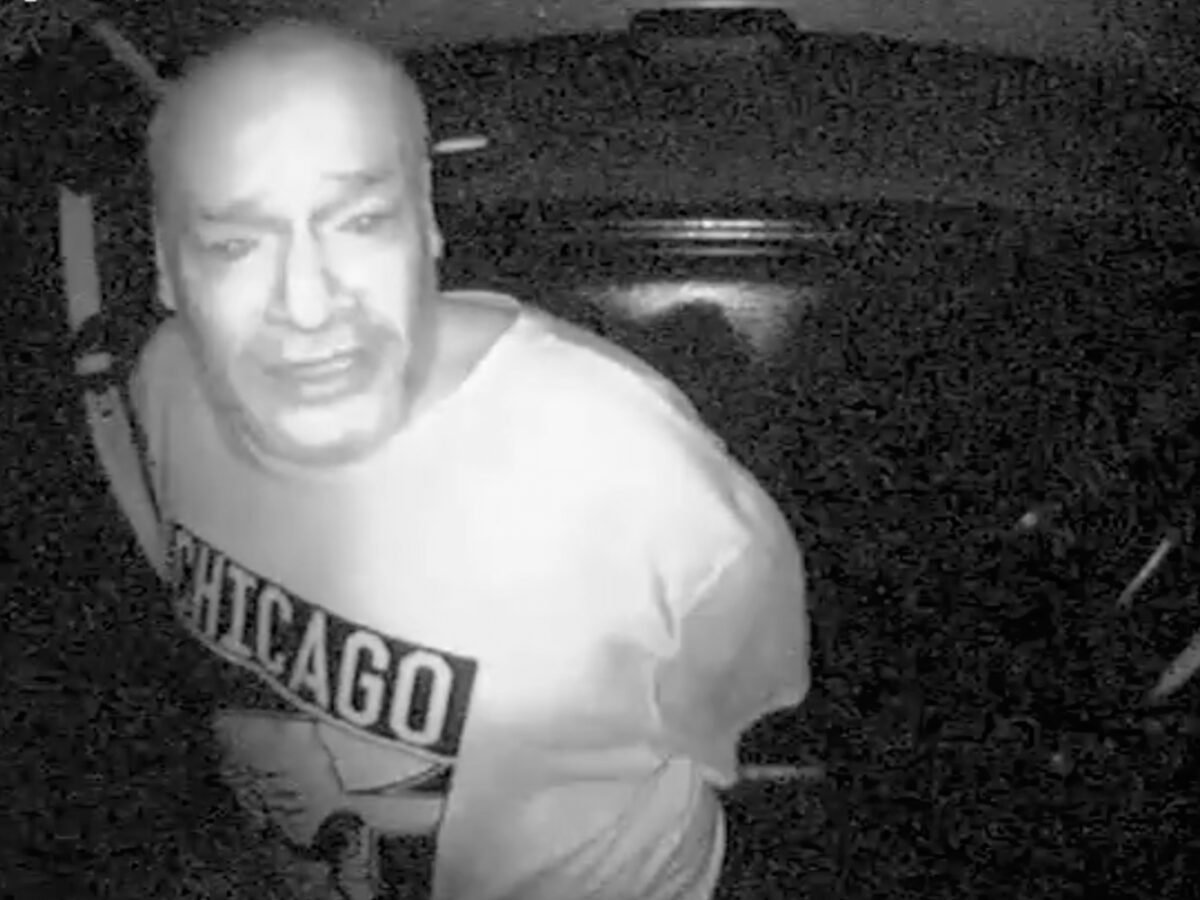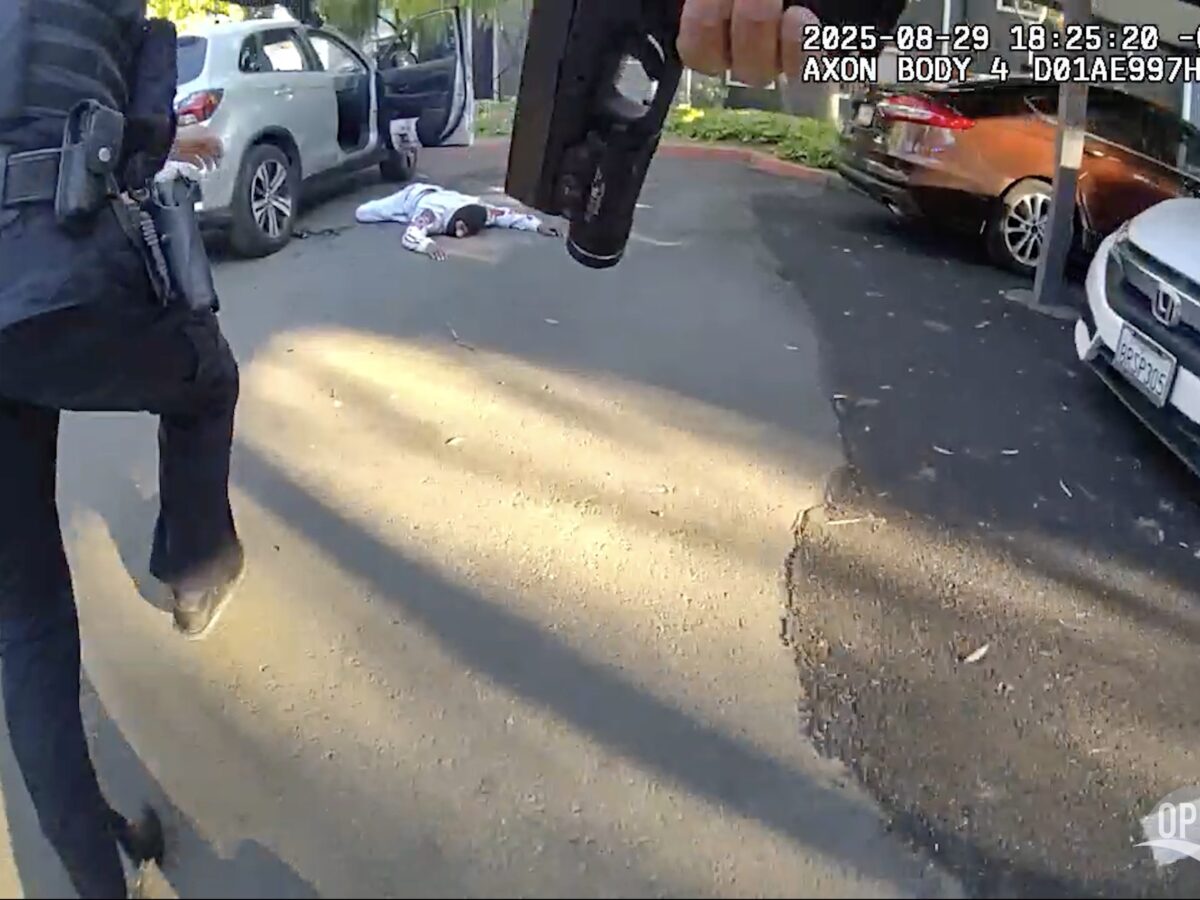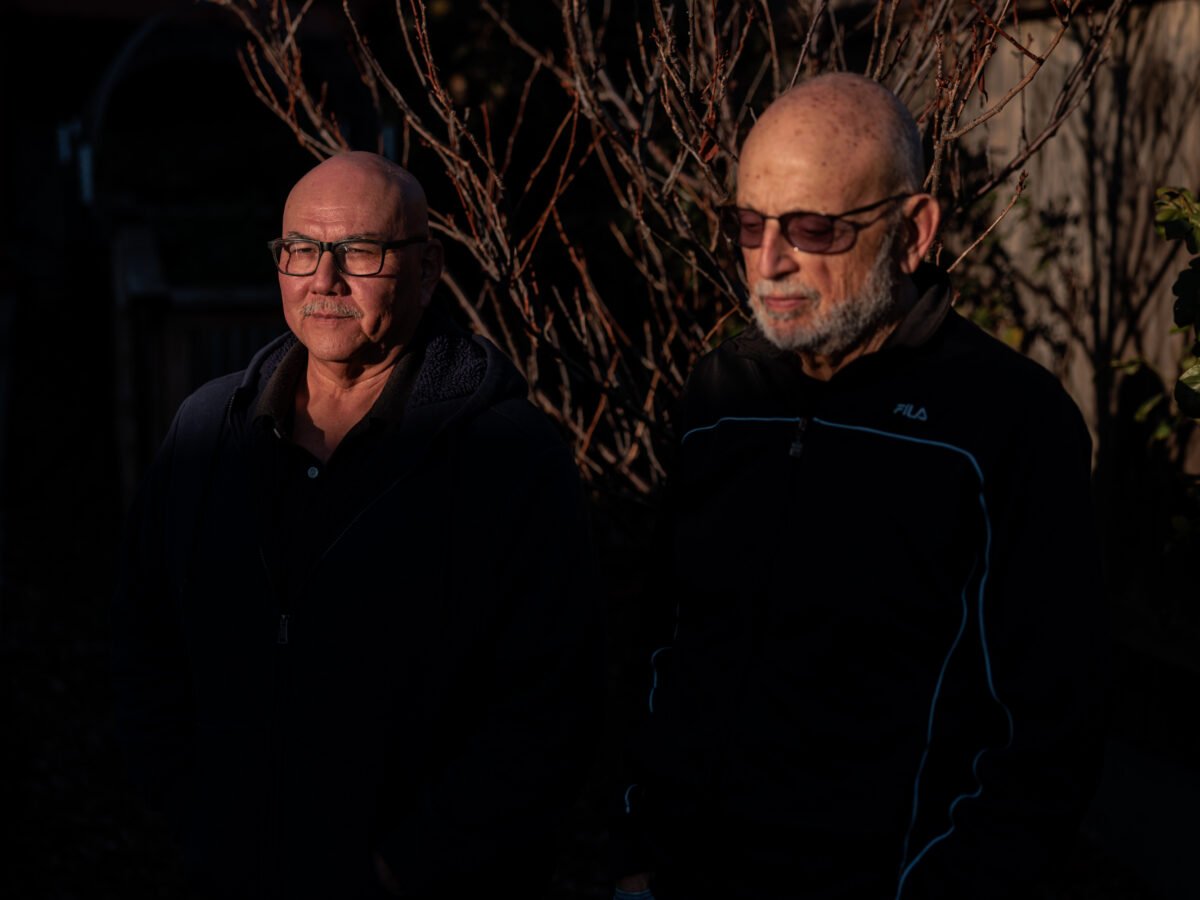
Geoffrey King / Open Vallejo
Vallejo City Councilmember Hakeem Brown, right, attends the swearing-in of Police Chief Shawny Williams last November. Elected to the council in 2018, Brown has rapidly consolidated political power by aligning himself with Vallejo’s powerful public safety unions. Credit: Geoffrey King / Open VallejoDeputy Sam Machado pulled off of County Road 88, a cracked strip of asphalt running through unincorporated Yolo County. He cut the engine of his Ford F-250 and began walking down a quarter-mile long gravel drive, toward a house so obscured by trees and shrubs that only the roof was visible. The nearest neighbor was half a mile away.
A young woman lived in the house. Her mother, who lived out of state, had grown increasingly worried. When she dialed 911 she told a dispatcher that she feared her daughter was being harmed, court records show.
Deputy Machado would later testify that he heard a door slam as he approached the house. The woman emerged wearing sweatpants and a robe, her head hung low. She did not seem to be aware of Machado, now about 30 yards away.
Machado called out to her, using the name her mother provided to the dispatcher: Chana Brown. As she walked toward him, he saw that she was shaking.
Machado asked Chana if she was okay. Without looking up, she said that she was. He asked whether she was sure.
Chana lifted her head, revealing deep bruising under both eyes. Her left cheek was swollen and a cut on her left earlobe was crusted with dried blood.
“No,” she said as she began to cry. “I am not okay.”
Machado helped Chana gather her belongings so she could check into a shelter. He drove her to the police station in nearby Winters, where she gave a statement. Machado would later describe his observations during a preliminary hearing over domestic violence and other charges.
“She appeared to be worn down,” Machado said of that April morning in 2012, “almost as if she was just a shell.”
Investigators concluded that the bruises on Chana Brown’s face were left by her husband, Hakeem Brown. Prosecutors alleged more than a dozen felony charges and enhancements against Hakeem Brown. But Chana Brown would stop cooperating with investigators, resulting in a single misdemeanor conviction for which her husband was sentenced to probation.
A city desperate for hope
The 2012 episode wasn’t the first time Hakeem Brown, now a Vallejo city councilmember and frontrunner for mayor, was accused of domestic violence. The allegations against him date back to 1994, an Open Vallejo investigation has found, interrupted by a prison sentence for injuries he caused his first wife twenty years ago.
Court records show:
- Hakeem Brown has been accused of domestic violence or related crimes in at least nine different incidents, including five cases that resulted in criminal charges, of which he was convicted in three.
- He has been accused of striking his pregnant partners on at least two occasions; after one incident, for which he was convicted of felony domestic violence, the woman lost the child.
- He allegedly followed women who had moved far away from him and confronted them.
- He has been married to more than one woman at the same time.
Although Vallejo is one of America’s most diverse cities, neither the area’s policies nor its politicians reflect it. Instead, the local power brokers are a largely-white collection of real estate agents, business owners, and public safety unions.
If anyone could shake up the established order, it seemed to be Hakeem Brown, who fashioned himself a hometown hero in a city desperate for hope. The charismatic Vallejo native casts himself as a populist reformer ready to “do the work” to improve the city. One of Vallejo’s few Black politicians, activists welcomed him as an ally against Vallejo’s police department, which is one of the most violent law enforcement agencies in California, data shows.
But once elected to the city council, Brown’s voting record and public statements belied the cheerful photo ops and gauzy campaign commercials. In particular, his allegiance to Vallejo police struck many residents as a betrayal. His response to questions about police violence frequently focused on placating officers, as when he explained his rationale for voting for a new, $50 million waterfront police station three days after officers killed a 20-year-old man who fell asleep in his car. “I don’t think it’s fair to expect a good job without making sure that we are treating them the way we’d want to be treated,” Brown said during the Feb. 12, 2019 council meeting, after the dead man’s loved ones pleaded with councilmembers to hold officers accountable.
Brown spent his first year and a half in office forging connections with regional and national political leaders. He networked at the nation’s capital and the California Democratic Convention. Now a frontrunner in Vallejo’s November mayoral race, Brown holds himself out as a champion for Vallejo’s youth, supporter of women and civil rights leader. The state Democratic Party recently endorsed him for mayor.
But Brown’s private conduct appears at odds with his public image of a churchgoing father who supports gender equality and encourages others to “trust Black women.” Court records and interviews reveal a man who multiple women assert engaged in a pattern of brutality, false imprisonment, and harassment.
At least five women have accused Brown of physical violence over the past two decades. He has faced more than a dozen charges involving domestic violence, and was convicted of at least three, two of them felonies. Brown spent more than four years in prison for assaulting his then-pregnant wife.
A self-described multimillionaire who regularly excoriates Vallejo’s failure to invest in the city’s youth, Brown has child support judgments against him for three of his four children, and has been accused in court papers of failing to support his youngest son. Brown has been charged with injuring the mothers of two of his children while they were pregnant or nursing, court records show, and was convicted in one of those cases. One allegedly was left with chipped teeth and may have partially lost her hearing due to his blows. Another lost her unborn child after being punched repeatedly in the stomach.
Open Vallejo uncovered Brown’s history while backgrounding each member of Vallejo’s city council. This article draws from more than 1,500 pages of court and police records. The documents span four U.S. states and seven California counties, including Solano, Napa, and Contra Costa; marijuana-producing regions like Yolo, Butte and Humboldt; and Santa Barbara, where Brown’s first wife, then 18 years old, fled. She is one of at least two women who left Vallejo to escape Brown, only to return to the Bay Area with Brown after he sought them out, according to records from Northern and Southern California, and interviews with survivors.
Hakeem Brown declined to be interviewed for this story. In response to a list of detailed questions, Brown’s lawyer Scot Candell threatened to sue this news organization for unspecified “libelous allegations.” Brown referenced his history in a statement published half an hour later, noting that he was once arrested for “a scuffle with a domestic partner.”
‘I want people to know that he isn’t who he says he is’
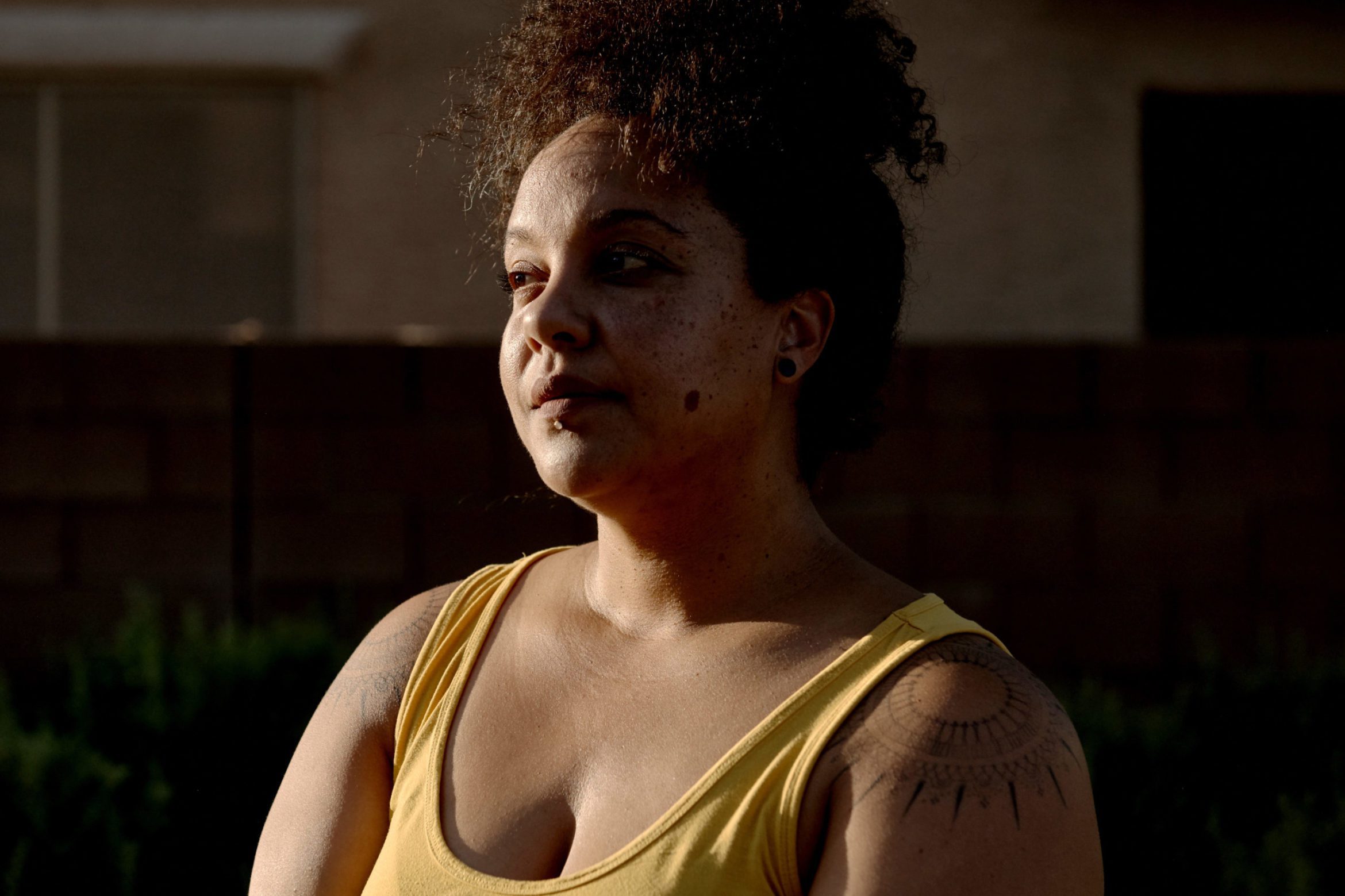
Bridget Bennett / Special to Open Vallejo
Joanna Cullom said she was “shocked” to learn Hakeem Brown had been elected to the Vallejo City Council. Credit: Bridget Bennett / Special to Open VallejoJoanna Cullom met Hakeem Brown in August 1999 outside an auto parts store in Vallejo. Brown was going on 24 years old; Cullom was 17.
“He asked me for my phone number, and the rest is history,” she said in an interview.
By April of the following year, Cullom was pregnant; by June, she was married.
Brown was secretive and controlling from the start of the relationship, Cullom said. He quickly became violent, court records confirm.
Cullom said an early incident took her by surprise.
“He pushed me up against the wall because he didn’t like what I was wearing,” Cullom said, adding that Brown frequently castigated her over her clothing. “No one had talked to me like that before.”
Brown became more controlling, Cullom said, and his violence more severe. It would soon become a regular occurrence. “He loved hitting me in the face,” she said.
Law enforcement and civilian witnesses noted Cullom’s “obvious” black eyes and other facial injuries following an incident for which Brown was convicted of domestic violence, court records show.
The couple had broken up when Cullom saw Brown at a party several months later. When she got in her car to go home, Brown followed her in his vehicle and cut her off, according to Solano County prosecutors. Cullom told police that before she could escape, Brown wrenched the passenger door open and jumped in. He struck the windshield, causing it to shatter, before threatening Cullom and shoving her out of the car. Brown was charged with misdemeanor vandalism, although this was later dropped.
Brown’s violence often revolved around money, court records show. Such was the case on August 5, 2000. The couple had reunited. Brown was sitting in his mother’s kitchen in Vallejo. He was upset. Visibly pregnant, Cullom knelt between his legs, trying to reassure him that things would be okay.
Brown shoved Cullom to the floor, she later said at a preliminary hearing. She stood up and again tried to reassure him.
“No, this is not going to be okay,” Brown told her, before punching her in the stomach. She remained on her feet. He punched her at least five times, including twice more in the abdomen, before abruptly leaving the house, she said.
Cullom remained in the kitchen, crying. She would soon learn that she lost the baby.
Two days later, Brown wanted money, Collum would later testify. He forced Cullom, covered in large bruises, to drive him to the Westamerica Bank in Benicia so she could cash her weekly paycheck of a few hundred dollars. She was afraid of what might happen if she didn’t follow his instructions, court records show.
Once inside the bank, Cullom realized she did not have the check. Frantic, she started looking through her purse. She burst into tears. Then, overwhelmed with fear, she vomited. A bank employee took her to a private room and called the police, who arrested Brown on an outstanding warrant.

Geoffrey King / Open Vallejo
Joanna Collum sought help from employees of the Westamerica Bank branch in Benicia, California. Credit: Geoffrey King / Open VallejoSolano County prosecutors charged Brown with five felonies, including one for beating Cullom. The district attorney stacked several charges for a stolen handgun police found in the trunk alongside marijuana, a scale, and a large wad of cash. Brown was barred from possessing the black and gray 9mm Ruger because of a 1995 home invasion.
Two months later, Brown was arrested in an unrelated case in Humboldt County. Prosecutors charged him with four felonies, all later dismissed, alleging he concealed a loaded gun and received stolen property. He was released, then drove four hours south back to Vallejo, where a preliminary hearing was set for the next morning.
At the hearing, Collum, who was no longer pregnant, testified that Brown knew she was carrying a baby when he struck her repeatedly in the stomach. The prosecutor who was questioning Cullom changed the subject, and Cullom never faced a direct question about why she miscarried. Brown was not charged in connection with Cullom losing the child.
Twenty years later, Cullom was asked her opinion about whether Brown’s violence played a role in losing the baby.
“It was a direct reflection of his abuse,” she said.
A judge found there was probable cause to charge Brown on four counts relating to the gun and marijuana, and one for domestic abuse. Cullom fled, eventually making her way to Santa Barbara where she rented a room in a small house and began working at a local Macy’s.
In early December 2000, two months after the hearing, Brown arrived uninvited to Collum’s house in the middle of the night to convince her to go back to the Bay Area with him, Cullom told investigators. Later that morning he became agitated and punched Collum several times in the face, according to an arrest affidavit. He then grabbed her by the throat and continued punching her, first in the back, then in the arm. By noon, they were on their way back to Vallejo. But Collum didn’t stay long.
Collum returned home to Santa Barbara, alone, on Dec. 10. But Brown, once again, was not far behind. Concerned about Cullom’s injuries from the Dec. 8 beating, her housemates were preparing to take her to the hospital when Brown showed up and insisted that he would take her back to Vallejo, records show. Cullom agreed to go with one of her housemates, but when the hospital declined her insurance, Brown became angry and insisted on taking her to a different hospital. With Brown nearby, Cullom lied to emergency room nurses that she had received her injuries in a car accident, her housemate told investigators.
Brown turned up at Cullom’s house again the next afternoon, determined to bring her back to the Bay Area, authorities asserted in an arrest warrant application. When he would not leave, a housemate called police, records show. Brown fled in a rented maroon sedan before police arrived.
Officer Gary Gillingham saw Cullom step through the front door of the house, and noticed she had deep bruises under both eyes — the same injuries Deputy Machado would observe on Chana, Brown’s then-wife, more than a decade later.
Collum told investigators that she had at least two emergency protective orders against Brown in Northern California, according to the warrant affidavit. She was still wearing her hospital band during the interview, documents show.
Arrested for felony domestic violence in Santa Barbara, Brown appears to have spent Christmas in custody. He posted a $25,000 bond the following day. Charging documents show that over the next few months police were called on him at least twice: once by a woman who said he punched her in the face; and again for allegedly breaking a woman’s window after demanding she return the dog he gave her a week prior.
Brown pleaded no contest to domestic violence in Santa Barbara County Superior Court on May 23, 2001. In exchange, prosecutors agreed to drop a charge alleging he violated a stay-away order issued to protect Cullom.
Originally facing four years behind bars, records show Brown was sentenced to 60 days in county jail, with credit for 33 of them. In lieu of custody, Brown received three years’ probation and was ordered to take an anger management course.
Meanwhile, the Solano County case was slowly moving forward, and on July 17, 2002, Hakeem Brown pleaded guilty to two felony charges. The first was for assaulting Cullom two years earlier. The second was for possessing marijuana for sale. He admitted to a sentencing enhancement for the stolen gun, as well.
The next six months were eventful for Brown. He married and fathered a child with another woman, according to child support records. That marriage was later annulled on the grounds that he was still married to Collum. On September 17, 2002 — less than a week before another young woman would give birth to his eldest son — Brown was sentenced to state prison, court records show.
‘The Rules of Marriage’
Released from prison in 2006, Brown went to work building his marijuana dispensary in Vallejo.
In February 2011, he met 26-year-old Chana at the NBA All-Star game in Los Angeles. Beautiful and quick-witted, Chana later told people close to her that Brown claimed to work in the music industry and that he was very wealthy. Several people close to Chana spoke to Open Vallejo on condition of anonymity, citing Brown’s violent history.
Chana exuded warmth. “She was a big ball of energy,” one person said.
Chana’s romance with Brown was swift and intense. She moved from New Jersey to California to be with him soon after they met. They married on July 2, 2011. Brown moved Chana to the rural property in Yolo County, where he set up what authorities alleged was an illegal marijuana grow, according to court records.
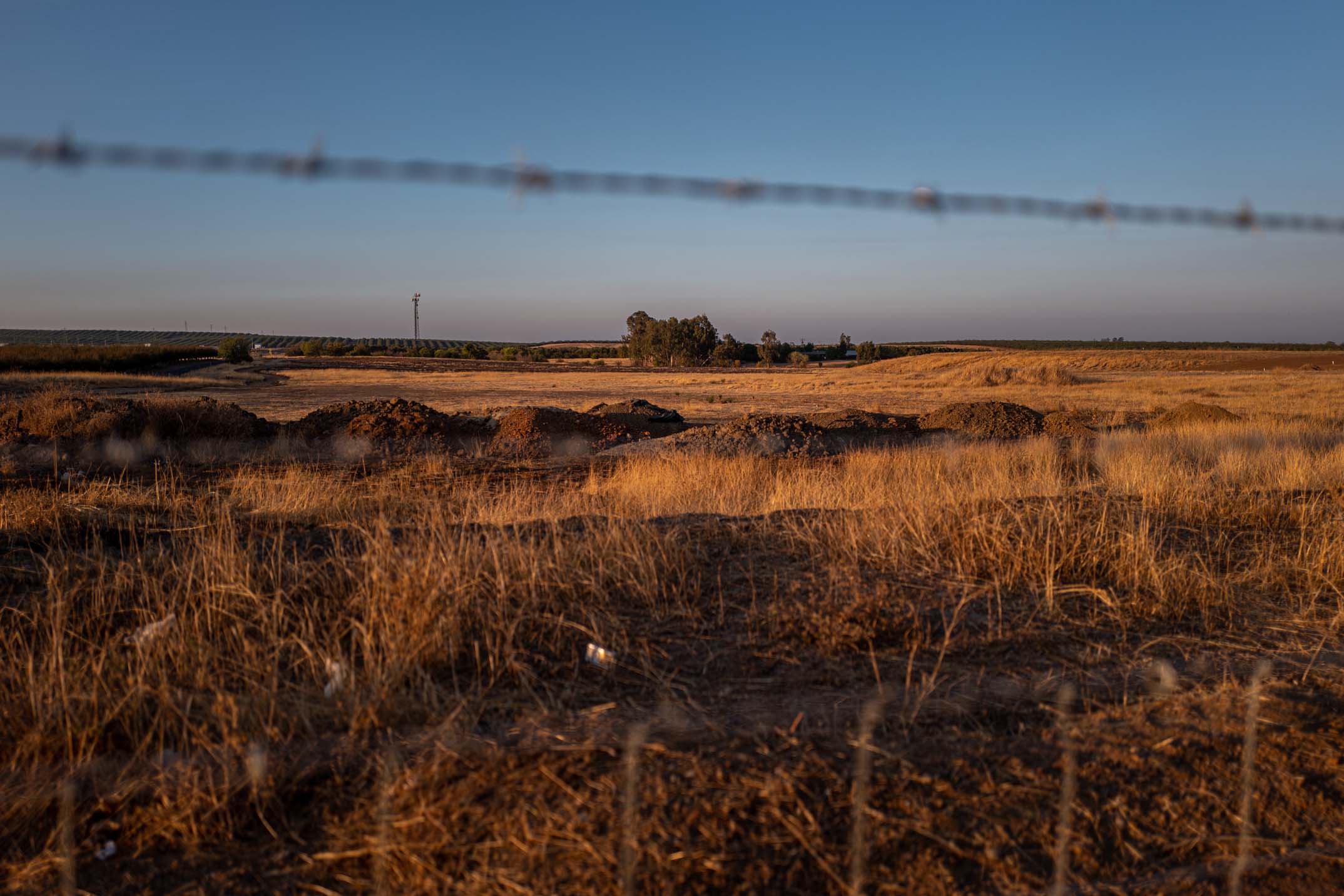
Geoffrey King / Open Vallejo
A grove of trees shields the house where in 2012 Hakeem Brown was arrested for “domestic violence bordering on torture,” according to court records. Brown would later plea to a single misdemeanor charge. Credit: Geoffrey King / Open VallejoPeople who were in contact with Chana said Brown kept her under close watch. When they saw Chana, they observed she had bruises and chipped teeth, as well as bald patches where her hair appeared to have been ripped out.
Chana told investigators that Brown assaulted her multiple times a week, court records show. She canceled prenatal appointments because her bruising would have been apparent to her doctors. He choked her unconscious on more than one occasion, according to court records.
The violence continued after Chana gave birth to their son. She told Deputy Machado that Brown assaulted her as she was caring for their newborn, on several occasions beating her to the ground as she tried to shield her baby. On two occasions he punched her in the face as she was driving with their infant son sitting in the backseat. In one of those incidents Brown struck Chana so hard the car veered off the road and onto the shoulder, but Chana managed to regain control of the vehicle and avoid a crash.
Brown expected total obedience, court records show. While searching the couple’s home, investigators seized a document titled “The Rules of Marriage” that listed five commands, written in Chana’s handwriting, that Brown expected her to follow.
#1. Do what he tells me to do.
— THE RULES OF MARRIAGE, A DOCUMENT SEIZED FROM THE RESIDENCE OF HAKEEM AND CHANA BROWN
#2. Don’t tell people our personal business.
#3. Cannot talk to any other man.
#4. Submissive to my husband. (He is the boss. He is the provider.)
#5. Trust his decisions. (I cannot have an opinion.)
The rules were brutally enforced, according to prosecutors. As Deputy Machado testified at a preliminary hearing in April 2012, Chana told a friend that she feared Brown’s temper, saying she had considered reporting him to the police. Brown confronted Chana about the conversation and reminded her of Rule #2: “Don’t tell people our personal business.”
He appeared to offer her a way out.
“Just leave,” Brown told Chana. “Take the kid, and I never want to see you again.”
Brown asked Chana what she wanted to do. It was, as Chana later explained to law enforcement, a “test question.” Brown would occasionally invite Chana to share her opinion, or make a decision, to see how she would respond. If Chana said the “wrong” thing, she explained, Brown became violent. That day was no different.
Chana said she was going to take their child and leave. Brown immediately grabbed her by the hair, wrenched a fistful directly from her scalp, and threw it on the ground; Machado would later find a large clump of human hair in a bedroom trashcan. Brown then grabbed Chana by the throat, lifted her 5-foot-5-inch frame over the couch, and pinned her to the floor by her neck, squeezing until she could no longer breathe.
Yolo County sheriff’s deputies arrested Brown “on probable cause for domestic violence bordering on torture,” according to a declaration describing his arrest. A search warrant uncovered body armor, surveillance equipment, and ammunition. Brown was charged with five felony counts of domestic violence and false imprisonment, two for the marijuana grow and one for possession of ammunition.
Chana left California with the baby. For a while they stayed in a women’s shelter in New Jersey, later moving to an apartment. Protective orders in both states shed additional light on Brown’s abuse.
Chana told people close to her that Brown flew out to New Jersey and that she flew back to California on several occasions after he was charged. People close to her believe the couple later resumed their relationship. Soon, both the marijuana and the domestic violence cases would fall apart.
On Aug. 9, 2012, an investigator with the Yolo County District Attorney’s Office attempted to serve a trial subpoena on Chana at a residence in Oakland, a photograph of her in hand. He found her with Brown, in violation of a court order preventing him from being near her, court records show. Brown told the investigator, “There is no Chana here,” and the couple went inside a residence.
On Nov. 30, Brown pleaded no contest to a misdemeanor charge for disobeying the stay-away order. He was sentenced to three years’ probation, ordered to pay an $825 fine, and to take another anger management course.
Chana eventually moved to Florida. She finished her bachelor’s degree and took a job she loved, those close to her said. She was talking about going back to school to get a master’s degree. And, people who were close with her said, she was a loving and selfless mother to her son.
Chana was murdered earlier this year. A man she had been dating has been charged with killing her. She died of two blows to the head with a hammer; she was 35 years old. She was still married to Brown at the time of her death, according to court records.
Chana Brown’s son, the one she carried in her belly as Brown allegedly punched her in the stomach, carried in her arms as he punched her to the ground, the one she tried so hard to protect, now lives with Brown.
The child’s maternal grandmother sought an emergency order granting her custody, arguing that she had helped raise the boy after Brown abandoned him. She lost and a judge in Florida awarded full custody to Brown.
Those who knew Chana say her son meant everything to her, and that she was building a good life for both of them. But as one person who was close to Chana noted, life changed in an instant. “She never got to finish her story,” they said.
October is National Domestic Violence Awareness Month.
If you need help, you can call the National Domestic Violence Hotline at 1-800-799-SAFE (7233) or TTY 1-800-787-3224. Trained advocates can offer free, confidential support and referrals services in more than 200 languages.
There are many organizations and networks ready to provide support. Please see the following links for more information.
Solano County and neighboring counties
• Solano Family Justice Center
• Regional community-based resources
• Neighboring family justice centers
California
• California Partnership to End Domestic Violence resource list
United States
• The National Coalition Against Domestic Violence resource list has links to organizations specific to children, teens, elders, women of color, differently-abled persons, the LGBT community, and more.


